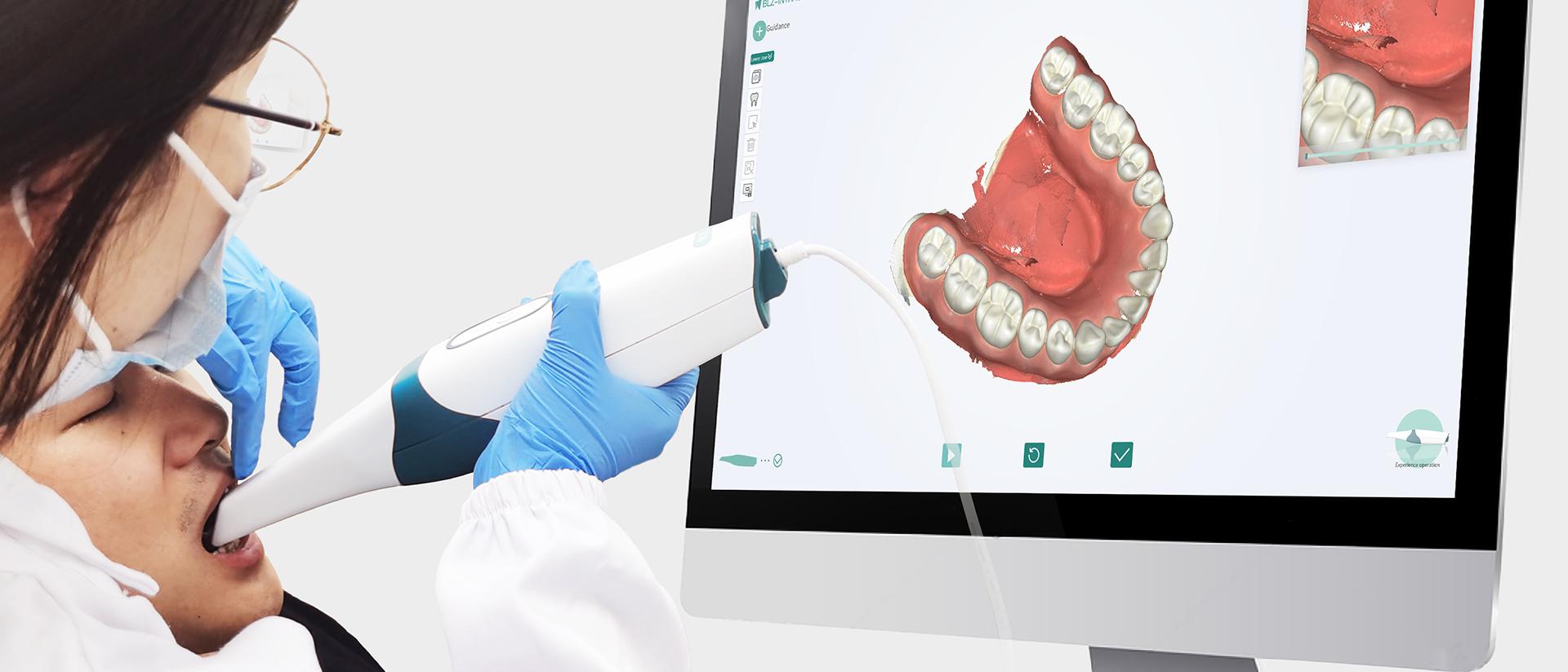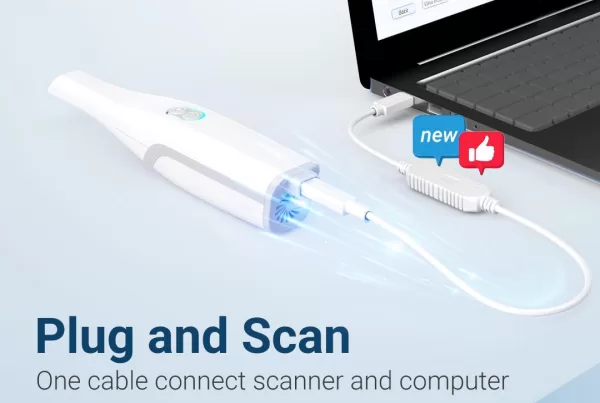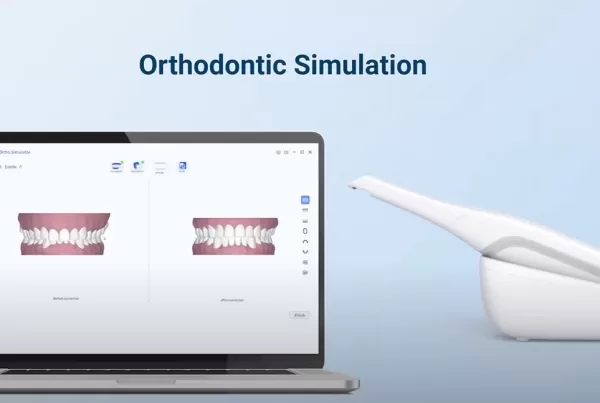Digital impressions offer a number of benefits for dental professionals and patients alike. And selecting one intraoral scanner that will meet your practice’s needs is important. In this article we will discuss some factors that are vital for consideration when you are trying to get an intraoral scanner for your practice.
Accuracy
In addition to saving time, staff costs, and laboratory fees, intraoral scanners significantly improve the accuracy of your dental prosthesis and treatments. When selecting an intraoral scanner, scanning accuracy must be a key factor. The ideal scanner should be accurate enough to support all types of restorative work, including crowns, bridges, dentures, night guards, clear aligners, and more. It need to capture microscopic details. Scanning accuracy should be high on your priority list of characteristics.
Software Compatibility
The scanner is powered by software, which has a direct impact on how well it performs. An open system that can easily integrates with third-party software and labs gives you flexibility in design and treatment. This ultimately allows you to provide the best care to your patients.
While essential for performance, software capability can differ widely from scanner to scanner. So it’s important to choose one that meet the requirements of your clinic.
Ease of Use
The intraoral scanning technique is meant to make your life easier and more convenient. As a result, an easy-to-use intraoral scanner should allow dentists and clinic staff to incorporate it more naturally into their daily workflow. A scanner that is easy to use and integrates well with the software saves time during clinical procedures.
Total Cost of Ownership
It is critical to view the purchase of a scanner as an investment rather than a cost. At the very first, you only think that making the switch to digital impressions can eliminate the costs of conventional impression materials and reduce the risk of remakes. However, you may find at last that your scanner will also pay for the cost of itself.
But, you should never forget to beware of additional costs associated with some scanners. Some costs for things like auxiliary equipment needed, software subscriptions, training, and customer support should also be considered. Make sure to familiarize yourself with the policies of each product prior to purchase to better assess the total cost of ownership.
Training, Technical Support and Warranty
Training
There is a learning curve to consider for any new process. After proper training and practice, both doctors and dental assistants can take digital impressions. It is critical to understand what training is included with your purchase to ensure that you and your staff will have access to a knowledgeable trainer. Some distributors, such as BLZ Dental, offer one-on-one training before, during, and post-sale.
Support
When you have access to a good support team, it reduces the risk of downtime caused by a malfunctioning or broken scanner.
Warranty
If you’re like many clinicians, you might consider the intraoral scanner to be a valuable tool in your practice. A good warranty will protect your investment in IOS technology. So, you should always get all the details you can about the basic warranty and if you can extend it.


